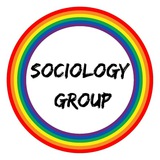In Delhi, before the advent of radio taxis, the black and yellow taxis dominated. Mehram Nagar was the anchor that connected the owners and the drivers, and this connection provided them with the impetus to form an association strong enough to negotiate with the authorities and operate independent of third parties.
The call centrebased radio taxis attracted many drivers as the system promised more profit. However, the model failed to provide drivers with the number of assignments they had been promised. Deposits, rents and passenger rating systems were used as disciplinary measures, giving passengers and companies more power over the drivers.
The exploitation of drivers by taxi companies saw retaliation but the introduction of appbased aggregators such as Ola and Uber and the awakening of the platform economy muffled this labour militancy.
The call centrebased radio taxis attracted many drivers as the system promised more profit. However, the model failed to provide drivers with the number of assignments they had been promised. Deposits, rents and passenger rating systems were used as disciplinary measures, giving passengers and companies more power over the drivers.
The exploitation of drivers by taxi companies saw retaliation but the introduction of appbased aggregators such as Ola and Uber and the awakening of the platform economy muffled this labour militancy.
Understanding surnames in India: A cross-cultural analysis
https://www.sociologygroup.com/understanding-surnames-in-india/
https://www.sociologygroup.com/understanding-surnames-in-india/
Sociology Group: Welcome to Social Sciences Blog
Understanding surnames in India: A cross-cultural analysis
Surnames are an important detail to know about people and they do highlight the uniqueness of not only each individual, but also each community in the world.
This article expands on how they aid cultural imperialism and globalization as well as provide a source of recreation and pleasure for their customers. It explores the components of globalization and the concepts of “nothing” and something”, as proposed by Ritzer and then connects them to the workings and layouts of shopping malls.
https://www.sociologygroup.com/shopping-malls/
https://www.sociologygroup.com/shopping-malls/
Sociology Group: Welcome to Social Sciences Blog
The Sociology of Shopping Malls: Analysis and Summary
Abstract- Shopping malls are a very important type of public space, especially in urban cities, for various reasons. They serve a variety of social effects and involve a range of sociological concepts.
Let’s take, for instance, A and B as two students who recently graduated from college and are looking for jobs. A is an upper caste and upperclass male student from a topranking university in India. His parents are both professors in social sciences who teach in top ranking colleges in the country. B is a Dalit male student, from a middleclass family and was a topper in a college in his hometown. His father is agovernment employee while his mother is a teacher in a government high school. Due to their grades and good performance in interviews, both are employed as research assistants at a college in Delhi, wherein their performance would determine a permanent position. A, due to his network with professors from different colleges, and his understanding of classical music and ancient art and culture is able to mingle well and have better conversations with his new colleagues resulting in him becoming popular, while B despite earning the same as A struggles to gel well with his cosmopolitan colleagues as his cultural and social capital is very different from the rest in his field. Though both are equally competent at their work, by the end of the term, A because of his social and cultural capital becomes a permanent employee at the college, while B loses the opportunity as he cannot relate to the doxa of the field. This example shows how cultural and social capital play an equally important role in determining one's future. It is not only economic class but also social class that one inherits from one’s family. Thus, habitus and capital not only determine one’s position in society but also result in the reproduction of inequality.
Is Abortion Legal In India For Unmarried Woman?: Bodily Autonomy And Abortion Laws In India
https://bnblegal.com/article/is-abortion-legal-in-india-for-unmarried-woman-bodily-autonomy-and-abortion-laws-in-india/
https://bnblegal.com/article/is-abortion-legal-in-india-for-unmarried-woman-bodily-autonomy-and-abortion-laws-in-india/
B&B Associates LLP
Is Abortion Legal In India For Unmarried Woman?: Bodily Autonomy And Abortion Laws In India
Is abortion legal in India for unmarried woman? Yes. Abortion is legal for an unmarried woman but there are certain conditions to make that happen. Thanks to the amendments that were made in the Medical Termination of Pregnancy Act, 1971 and also to the Pro…
Verstehen requires researchers to place themselves in the position of the individual observed to see and comprehend the meanings behind the person’s action and the meanings attached to the motivation, purpose or outcomes of their actions.
Social action determines structural transition in society. The causes and meanings attached to it is therefore important in understanding what pushes social change.
For example, Weber explained that the emergence of Calvinism promoted frugal living, saving money and business investments because profitmaking was attributed to God’s satisfaction with a person’s actions. This religious idea eventually led to the emergence of capitalism in northern Europe.
Social action determines structural transition in society. The causes and meanings attached to it is therefore important in understanding what pushes social change.
For example, Weber explained that the emergence of Calvinism promoted frugal living, saving money and business investments because profitmaking was attributed to God’s satisfaction with a person’s actions. This religious idea eventually led to the emergence of capitalism in northern Europe.
https://www.sociologygroup.com/tuitions/
If anybody want to join as Tutor or hire a tutor, please check this article and fill the form.
If anybody want to join as Tutor or hire a tutor, please check this article and fill the form.
Sociology Group: Sociology and Other Social Sciences Blog
Sociology Tuitions - Apply for Online Teaching & Hire Online Tutors
Sociology Group Global Tuitions will provide a platform for the tutors and students to flourish, learn, and grow, and this article will explain how.
Discrimination happens when people act on their prejudices or stereotypes.
